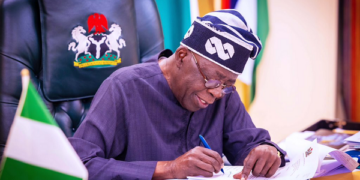- Aisha Wakaso, Niger State’s print media adviser, expresses concern over low women’s inclusion in politics, citing cultural barriers and lack of protection
- Wakaso calls for reforms to address marginalization, noting the absence of female governors and low representation in state assemblies
Aisha Wakaso, the special adviser on print media to Governor Umar Bago of Niger State, has expressed concern over the low inclusion of women in Nigerian politics. At the annual maiden lecture organized by Crisp Nigeria (CrispNG) on Saturday, commemorating the 2024 International Youth Day, Wakaso highlighted the significant barriers discouraging women from participating in politics.
During her address on the topic “The Nigeria of Our Dreams: Preparing Women and Girls for Leadership,” Wakaso lamented the absence of female governors across Nigeria’s 36 states. She pointed out that the only time a woman has held the position of governor was under extraordinary circumstances, such as the impeachment of a male governor.
“Sometimes women are blackmailed, and our private lives are brought to the public because we want political appointments. These challenges discourage women from getting involved in politics,” Wakaso said.
She also noted that despite some perceived advancements, the number of women in politics remains significantly low compared to men. Cultural and social norms, as well as financial barriers, further hinder women’s participation. Wakaso cited the example of Serah Jibril, who failed to receive a single vote from female delegates during the PDP primaries.
Wakaso also criticized paying large sums for political appointments, stating that women often lack the economic power to compete on this level.
She called for comprehensive reforms to address the marginalization of women in politics and urged governors and relevant stakeholders to create a more inclusive system. “Strengthening legal frameworks to protect women is crucial. Women are not adequately protected; we see high-ranking officials, such as the Senate President, disrespecting female colleagues like Senator Natasha Apoti,” Wakaso added.
She also expressed disappointment over the lack of progress in achieving the 35 percent affirmative action for women in politics, citing the low representation of women in the Niger State House of Assembly and among commissioners.
Wakaso’s remarks underscore the need for greater efforts to ensure women’s participation and leadership in Nigerian politics.










Discussion about this post